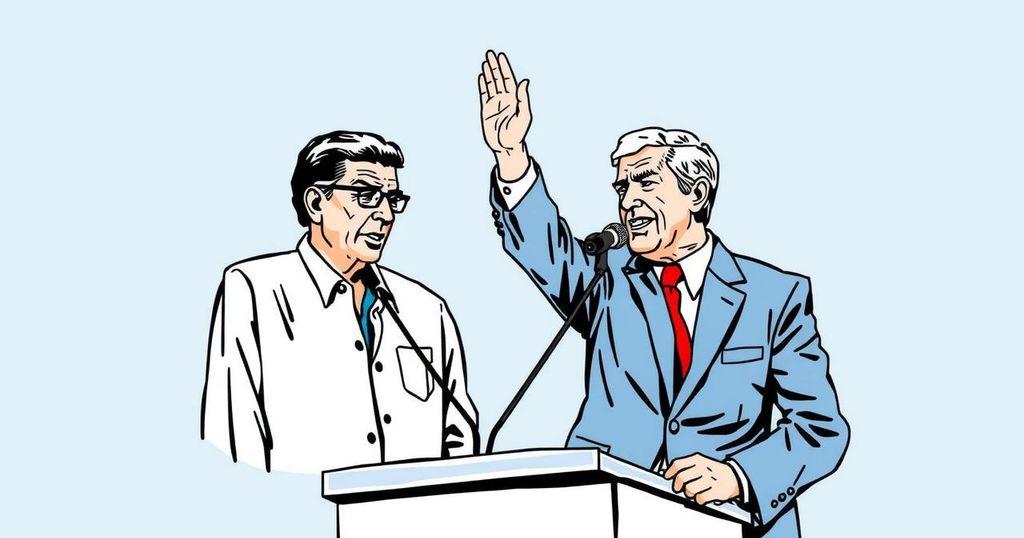Uruguay’s presidential runoff set for November 24 features candidates Yamandu Orsi and Alvaro Delgado, with tight polling suggesting a close race. Orsi presents a moderate left approach while Delgado seeks to maintain current government policies. Neither candidate has made significant pledges recently to sway undecided voters, raising questions about the election’s outcome amid economic considerations.
In Uruguay, voters are preparing to participate in a pivotal presidential runoff on November 24, 2023, between two moderate candidates. The opposition’s center-left candidate, Yamandu Orsi, aims to establish a “modern left” approach while facing off against the continuity conservative, Alvaro Delgado, who is supported by the Colorado Party and aims to maintain the current government’s policies. Final opinion polls indicate a very close race, with fewer than 25,000 votes anticipated to separate the candidates in a nation of 3.4 million people.
Uruguay’s political landscape is noted for its relative calm, lacking the stark divisions seen in countries like Argentina and Brazil. Ballot stations will open at 8 AM and close at 7:30 PM, with early results expected by 9:30 PM local time. Orsi recently secured 43.9% of the vote in the prior round, while Delgado garnered 26.8% with his coalition comprising nearly 42% overall. Despite the absence of outright majorities in the lower house following the October elections, Orsi’s Broad Front holds significant power in the Senate.
Both candidates are targeting the approximately 8% of voters who supported smaller parties or abstained in the first round. Notably, neither candidate has made recent substantial pledges to attract these undecided voters, and a recent televised debate seems to have had minimal impact. Moreover, as economic factors weigh heavily on global politics, analysts note that there are limited indications of a strong desire for significant political change among the Uruguayan electorate.
As the electoral year draws to a close, observers are keenly interested in whether Uruguay will align with the global trend of incumbent parties suffering from reduced vote shares, especially amid economic challenges.
Uruguay is a small yet stable South American nation that has garnered attention for its liberal policies and progressive social environment. This electoral cycle concludes a year characterized by heightened political activity across the region, with many countries experiencing sharp divides in voter preferences. The political dynamics in Uruguay present a contrast; the lack of tension between liberal and conservative parties reveals a preference for moderation within its political spectrum.
The upcoming presidential runoff in Uruguay represents a critical moment in the nation’s political landscape. With both leading candidates showcasing moderate platforms, the election outcome will be a reflection of the electorate’s sentiments toward continuity and change in governance. As such, voter engagement and the response to economic concerns will be pivotal in determining if Uruguay can maintain stability amid global electoral trends.
Original Source: www.arabnews.com






